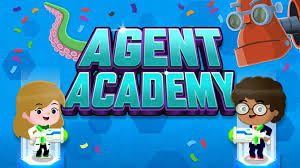
3 math games that will make your baby a genius.
Have you ever met such lucky people who win in any game? What helps them? Does knowledge help them? Abilities? Or maybe it’s just luck or chance? It turns out that chance is a concept underlying a special mathematical science called the theory of probability. Methods of probability theory allow to find some regularities in huge oceans of chance, to choose the most suitable one out of many available possibilities.
“Racing”
The game can be played by up to 12 people at a time. To understand how a pattern of chance occurs, draw treadmills, number them from 1 to 12 and break them into equal parts – divisions. Each player chooses a treadmill and places his horse, a chip on the start. One of the players throws 2 dice. The player whose horse stands on the treadmill with a number equal to the sum of the dice rolls his chip forward.
Play this game several times by selecting tracks with different numbers. Now let each player answer the following questions:
- Did you choose track number 1?
- Did you choose track number 1 or 12?
- Is there a track that you chose most often?
- How was your choice of track determined at the beginning, middle and end of the game?
- Did you notice a pattern in the game? Is there a sum of points that falls out more often on two dice?
If you answered the last question, which is the most common 6, 7, 8 points, then you have noticed the right pattern! Having learnt to identify regularities in a lot of cases, you can learn and evaluate your chances of winning.

Eagle or tails
Try to determine if the chances of eagle and tails falling out are the same when flipping a coin. If you do a lot of experiments on flipping a coin, you will notice that the eagle and the tails will fall out approximately the same number of times, that is, have approximately the same chances of falling out.
If you roll a die, the chances of getting 1, 2, 3, 4, 5 or 6 points are also roughly the same.
Therefore, if you are playing checkers with a friend and you use a coin or a cube to make the first move (for example, the first move is for someone who has an even number of points to fall out), the draw is fair because the odds of making the first move are the same. Go to the site and find out morehttps://argoprep.com/blog/second-grade-math-games-team-building-activities/
Game with matches
Now let’s look at another option for the first move: your partner takes 3 matches – 2 long matches, 1 short match, offers you to draw 2 matches. If they are the same length, you will go first; if they are different, your partner will go first.
Will this drawing of the first move be fair?
To answer this question, let us consider which matches can be pulled out if 1 match is long, 2 matches are long, 3 matches are short: 1 and 2, 2 and 3, 1 and 3. Only one out of three matches can be pulled out 2 long matches, which means that the second player has 2 times more chances. Such a drawing is unfair, you should not agree to it.
The ability to determine your chances of winning can be trained. Try to solve the problem.
Think of any unambiguous number except 0. Multiply it by 2. Add 3 to the product. Multiply the sum by 5. Throw away the first digit or, if you get a three-digit number, the first two digits. Multiply the remaining number, the last digit, by yourself. You’ve got 25.
Try to explain how to guess the answer!
Solving a variety of tasks ingenuity, your child will not only have fun, but also learn to reason and think logically. Filling in the “magic squares”, “entertaining framework”, finishing a drawing or table “by the rule”, the child will develop observation and learn to establish patterns. Performing the geometrical tasks connected with construction, modelling or design of figures, drawing of a route of movement or a pattern, the child will learn to use various drawing tools that will help to develop spatial imagination. And most importantly, your child will appreciate the beauty of the queen of all sciences, and the subject “mathematics” will become one of the favorites.